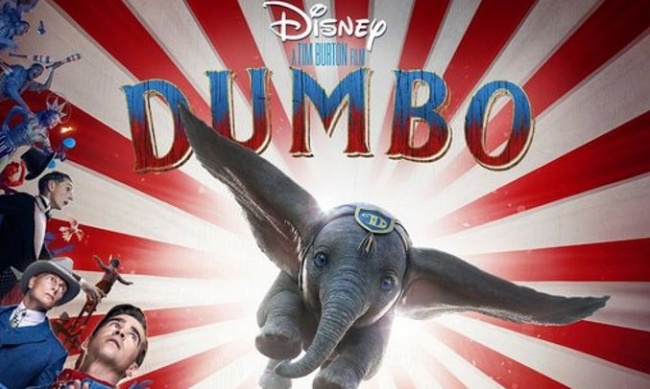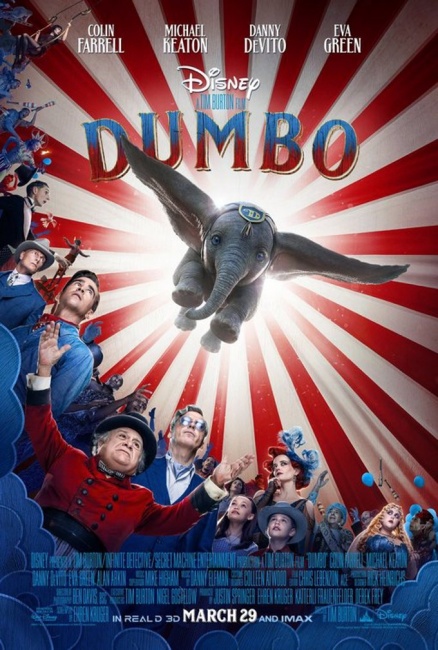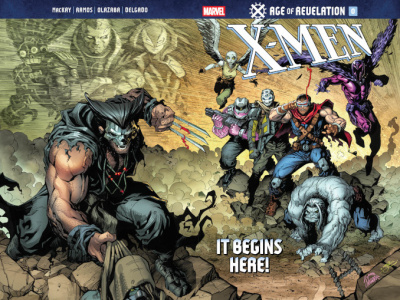When is a film that finishes #1 at the weekend box office with $45 million considered a disappointment? When, like Tim Burton’s Dumbo, the film costs $170 million to produce. Still whatever its long term prospects, Dumbo, with the help of still vital holdovers Us and Captain Marvel, pushed the total of the top 12 films to a 7.8% gain over the same weekend a year ago when Steven Spielberg’s Ready Player One debuted with $41.8 million, giving 2019 four consecutive “wins” versus 2018’s record box office pace.
Dumbo had been expected to clear $50 million, but fell well short of most analysts’ predictions, earning far less than Disney’s other big budget, high profile live action remakes like Burton’s Alice in Wonderland, which opened with $116.1 million in 2010, or The Jungle Book ($103.2 million in 2016), or Beauty and the Beast ($175 million) in 2017.
Dumbo did also earn $71 million overseas for a global debut of $116 million. But since Dumbo opened in every major market, this is likely the high water mark for its overseas weekend totals as well as its top domestic figure.
Despite mediocre reviews (just 50% positive on review aggregator Rotten Tomatoes), Dumbo received a solid “A-“ CinemaScore from opening weekend audiences, which skewed female (53%) and a bit older (54% over 25). So, with the upcoming holiday (and student spring breaks), Dumbo has a chance to prosper in the coming weeks and reach perhaps $150 million here in North America, but the competition will be fierce starting next weekend with Warner Bros.’ release of Shazam!, which like Dumbo targets a young demographic (but with a lighter touch, and loads of adolescent wish fulfillment).
Dumbo, which is based on a very short Disney animated feature from the early 1940s, is a property that is not all that well known today. A $116 million global debut would have been a solid start for a film that cost say $100 million, or even $125 million, but it is clearly a disappointment for one that cost $170 million to produce and millions more to market.
Disney will launch two other high profile, live-action remakes this summer, Aladdin and The Lion King, both of which are based on popular 1990s Disney animated films, and which therefore should fare better with contemporary audiences, though it is clear that the Mouse House is over-saturating the market by scheduling 3 such projects for release in the same year. Why are they doing it? The answer lies in the Disney+ streaming service that the studio plans to launch—and even if Burton’s Dumbo does end up losing some money with its theatrical run, it will be seen plenty as a prestige offering for Disney’s entry into coming “war of the streamers.” There are currently at least 300 streaming services in the marketplace, or scheduled to debut within the next year, so the purveyors of digital content will need every advantage they can muster.
Last week’s winner, Jordan Peele’s horror film Us, dropped 53% in its second frame, a solid hold for a horror film with such a robust debut, earning $33.6 million to push its ten-day total to $128 million. It appears now that Us will top Peele’s highly successful Get Out’s domestic total of $176 million, but Us will face direct and potentially potent competition from Paramount’s adaptation of Stephen King’s Pet Sematary.
Meanwhile Marvel Studios’ Captain Marvel keeps chugging along, dropping just 40.2% in its fourth weekend in theaters as it added $20.5 million to bring its domestic total to $353.8 million. It will be a bit of a struggle, but Captain Marvel still has a decent shot at becoming the seventh Marvel film to pass the $400 million mark here in North America (not accounting for inflation, for example Iron Man’s $318.4 million total in 2008 would be over $400 million in today’s dollars, but it was not included in the over $400 million tally).
Overseas Captain Marvel has earned $636.8 million for a global haul that is just in excess of $990 million. Sometime this week Captain Marvel will become the seventh (out of 22 total) Marvel Studios’ release to top $1 billion worldwide.
The teenage tearjerker Five Feet Apart continues its strong play to a limited demographic, declining just 27% in its third weekend as it earned $6.2 million to bring its domestic total to $38.9 million.
Fifth place went to the anti-abortion “Christian” film Unplanned, which earned $6.1 million from just over 1,000 theaters, one of the better showings for any of the recent crop of religiously-themed releases. Financed by the “My Pillow Guy,” Mike Lindell, Unplanned benefited from a savvy market campaign that targeted some of the same TV and cable outlets that are heavily festooned with the ubiquitous “My Pillow” ads.
The real life “terrorism thriller” Hotel Mumbai expanded to 924 theaters and earned an OK $3.2 million, while Harmony Korine’s The Beach Bum, which stars Michael McConaughey, Zac Effron, Jonah Hill, and Snoop Dog, bombed, producing the worst debut in McConaughey’s career, bringing in just $1.8 million from over 1,000 venues. The audience for The Beach Bum skewed heavily male (58%), with 40% of the R-rated film’s audience between the ages of 25 and 34.
Be sure to check back here next weekend to what happens when the Warner Bros./DC superhero film Shazam! roars into over 4,100 theaters, while Paramount’s new version of Stephen King’s Pet Sematary debuts in 3,400 venues, and The Best of Enemies, a racial drama about the battle over school desegregation in the South, opens in over 1,600 locations.

'Captain Marvel' Nears $1 Billion Worldwide
Posted by Tom Flinn on March 31, 2019 @ 7:43 pm CT
MORE COMICS
From Tiny Onion, Dynamite, Image, IDW
July 18, 2025
There are four Humble Bundle deals running right now, from Tiny Onion, Dynamite, Image, and IDW.
From Marvel Comics
July 18, 2025
Age of Revelation, a new status quo taking place 10 years into the future and arising out of current developments in the X-Men titles, begins in October.
MORE COLUMNS
Column by Rob Salkowitz
July 14, 2025
Superman isn't a character who needs a general introduction to the broader public; he just needs an existing global fanbase to take a fresh look.
Column by Scott Thorne
July 14, 2025
This week, columnist Scott Thorne discusses Green Ronin Publishing's GoFundMe to fund its legal fight against Diamond Comic Distributors, and the soft preorders for the latest Horus Heresy box.








